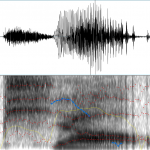Articles in the ‘Speaking’ category Page 9
-
How to find out how good your Chinese pronunciation really is
Evaluating pronunciation needn’t be hard, but many methods commonly used by teachers are deeply flawed, resulting in inaccurate error analysis. If we want to improve, we need to be clear about what we need to improve first. This article looks at some problems with commonly used methods to evaluate pronunciation and suggests some alternatives.
Read → -
How to Approach Chinese Grammar
In this article John Pasden discusses how to approach Chinese grammar as a foreigner, starting by debunking a few myths and then going on to how to actually learn grammar. Chinese is a language where you can very far with just a few basic concepts and patterns, so make the most of what you learn and try to use it immediately. Then extend your knowledge gradually and return to old patterns for a more detailed look later when you actually need to. Grammar learning should be driven by an actual need for better ways of expressing yourself or understanding what people say to you!
Read → -
Why good feedback matters and how to get it
Teachers give feedback in many different ways, some terribly bad, others very good. The bad ones let you struggle for hours just to correct your essay, not necessarily learning much on the way. The good ones not only allow you to correct your essay, you also feel that you’re learning a lot and won’t make the same mistakes again. This article sets down some guidelines for how to give good feedback, useful for both students and teachers.
Read → -
Improving Foreign Language Pronunciation: Interview with Hacking Chinese on Language is Culture
This is a 70-minute interview with me done by David Mansaray of Language is Culture. In the interview, we talk mainly about learning how to pronounce a foreign language as an adult. I share some of my own knowledge, thoughts and opinions and there’s probably something for everyone in this interview. Listen to it directly or download it to your phone for later listening!
Read → -
Asking the experts: How to learn Chinese grammar
How should we learn Chinese grammar? This article collects the best answers from more than 15 experts and experienced learners.
Read → -
Two reasons why pronunciation matters more than you think
Good pronunciation matters, whether you like it or not. In general, students (and teachers) tend to stop caring about pronunciation much earlier than they should. You don’t need to aim for native-like pronunciation, but clear and easily-understood Chinese should be the goal of all students. In this article I present two arguments: one about the fact that pronunciation and communication are closely linked, one about how pronunciation reflects both you as a person and your other skills.
Read → -
Focusing on tone pairs to improve your Mandarin pronunciation
When learning to pronounce tones in Chinese, it makes sense to focus on words rather than single syllables. Most words in Mandarin are disyllabic and since practising these will also include tone changes (sandhi), focusing on tone pairs is recommended. This article gives you all HSK and TOCFL words, sorted by tone! First all [first tone] + [first tone], then all [first tone] + [second tone] and so on. This is great for students who need words to practise difficult combinations, but it’s also useful for teachers.
Read → -
Role-playing to learn more Chinese and avoid frustration
Focusing on meaning rather than form is usually a good idea. It allows you to communicate as opposed to just do drills, which is only useful in limited doses. However, caring too much about what you want to say rather than how you do it will sometimes make you unable to say much at all. In these cases, role play! You don’t need to answer questions truthfully in class. Exploring questions from different perspectives will not only help you learn more, it’s more fun as well!
Read → -
Improving your spoken and written Chinese by focusing on the process
Focusing on the process rather than the result has obvious benefits when trying to learn a foreign language. Does it really matter what number your teacher puts on the final version of your essay? No, what matters is what you learnt and what you will be able to improve until next time. Process writing is common enough, but this article extends the concept to speaking as well, which is a much neglected technique in language learning.
Read → -
Drills and exercises aren’t only for beginners
It’s commonplace to see workbooks used a lot in beginner courses, but the more advanced the students become, the less they are used. This is mostly for the better, but in this article, I argue that advanced students actually need more drilling than they (we) think. Being able to say or write what we want in one way isn’t enough, we need diversity and a bigger active vocabulary. Drilling is the only time-efficient way of achieving that.
Read →








